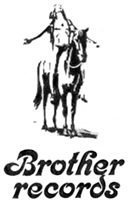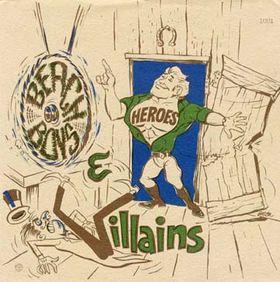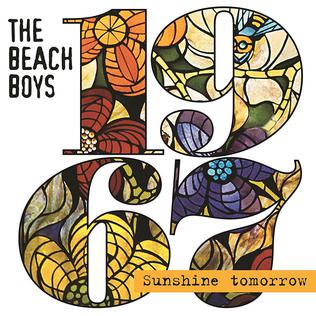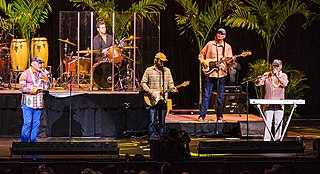
The Beach Boys are an American rock band formed in Hawthorne, California, in 1961. The group's original lineup consisted of brothers Brian, Dennis, and Carl Wilson, their cousin Mike Love, and friend Al Jardine. Distinguished by their vocal harmonies, adolescent-oriented lyrics, and musical ingenuity, they are one of the most influential acts of the rock era. They drew on the music of older pop vocal groups, 1950s rock and roll, and black R&B to create their unique sound. Under Brian's direction, they often incorporated classical or jazz elements and unconventional recording techniques in innovative ways.

Smiley Smile is the 12th studio album by American rock band the Beach Boys, released on September 18, 1967. Conceived as a simpler and more relaxed version of their unfinished Smile album, Smiley Smile is distinguished for its homespun arrangements, "stoned" aesthetic, and lo-fi production. Critics and fans generally received the album and its lead single, "Heroes and Villains", with confusion and disappointment. The album reached number 9 on UK record charts, but sold poorly in the U.S., peaking at number 41—the band's lowest chart placement to that point.

Brother Records, Inc. (BRI) is an American holding company and record label established in 1966 that owns the intellectual property rights of the Beach Boys, including "The Beach Boys" trademark. It was founded by brothers Brian, Carl and Dennis Wilson, and their cousin Mike Love. As of 2011, the corporation was equally owned by four shareholders and directors: Brian Wilson, Mike Love, Al Jardine, and the estate of Carl Wilson.

Wild Honey is the 13th studio album by American rock band the Beach Boys, released on December 18, 1967, by Capitol Records. It was the group's first foray into soul music and was heavily influenced by the R&B of Motown and Stax Records. The album was the band's worst-selling at that point, charting at number 24 in the US. Lead single "Wild Honey" peaked at number 31, while its follow-up "Darlin'" reached number 19. In the UK, the album peaked at number seven.

Friends is the 14th studio album by American rock band the Beach Boys, released on June 24, 1968, through Capitol Records. The album is characterized by its calm and peaceful atmosphere, which contrasted the prevailing music trends of the time, and by its brevity, with five of its 12 tracks running less than two minutes long. It sold poorly, peaking at number 126 on the Billboard charts, the group's lowest U.S. chart performance to date, although it reached number 13 in the UK. Fans generally came to regard the album as one of the band's finest.

"Heroes and Villains" is a song by the American rock band the Beach Boys from their 1967 album Smiley Smile and their unfinished Smile project. Written by Brian Wilson and Van Dyke Parks, Wilson envisioned the song as an Old West-themed musical comedy that would surpass the recording and artistic achievements of "Good Vibrations". The single was Brother Records' first release. While it failed to meet critical and commercial expectations, it was a hit record, peaking at number 12 in the U.S. and number 8 in the UK.

"Surf's Up" is a song recorded by the American rock band the Beach Boys that was written by Brian Wilson and Van Dyke Parks. It was originally intended for Smile, an unfinished Beach Boys album that was scrapped in 1967. The song was later completed by Brian and Carl Wilson as the closing track of the band's 1971 album Surf's Up.
"Wonderful" is a song by the American rock band the Beach Boys from their 1967 album Smiley Smile and their unfinished Smile project. Written by Brian Wilson and Van Dyke Parks, it was their only collaboration that resulted in a love song, telling the story of a young girl's sexual awakening and its disruption of her devotion to God and her parents.

"Cool, Cool Water" is a song by the American rock band the Beach Boys from their 1970 album Sunflower. It was written by Brian Wilson and Mike Love and later issued as an A-sided single in March 1971.
"Wind Chimes" is a song by the American rock band the Beach Boys from their 1967 album Smiley Smile and their unfinished Smile project. Written by Brian Wilson and Van Dyke Parks, it was inspired by wind chimes hanging outside Wilson's home and was one of the first pieces tracked for the Smile sessions.
"Little Pad" is a song by the American rock band the Beach Boys from their 1967 album Smiley Smile. It was written by Brian Wilson and its working title had been "Hawaiian Song". On the track, the group sings in unison about wanting a "little pad in Hawaii" while accompanied by a Hawaiian guitar, an organ, and clip-clop percussion.
"Vegetables" is a song by American rock band the Beach Boys from their 1967 album Smiley Smile and their unfinished Smile project. Written by Brian Wilson and Van Dyke Parks, the song was conceived by Wilson as a tongue-in-cheek promotion of organic food. Another reported inspiration for the song was a humorous comment Wilson heard about the effect of marijuana turning him and his friends into a "vegetative" state.
"Do You Like Worms?" is a song by American rock band the Beach Boys from their unfinished album Smile. Written by Brian Wilson and Van Dyke Parks, the song is about the recolonization of the American continent and contains references to the Sandwich Islands and "Bicycle Rider Back" playing cards. None of the lyrics appear to mention worms; asked about the title, Parks said he could not remember where it came from.

Beach Boys Studio was a private recording studio owned by the Beach Boys. It was located within Brian Wilson's home at 10452 Bellagio Road in Los Angeles. Six of the band's albums were recorded there in addition to his "Bedroom Tapes". In 1972, the studio was dismantled and later succeeded by Brother Studios in Santa Monica, California.

Smile is an unfinished album by the American rock band the Beach Boys that was intended to follow their 1966 album Pet Sounds. It was to be an LP of twelve tracks assembled from modular fragments, the same editing process used for their "Good Vibrations" single. Instead, after a year of recording, the album was shelved and the group released a downscaled version, Smiley Smile, in September 1967. Over the next four decades, few of the original Smile tracks were officially released, and the project came to be regarded as the most legendary unreleased album in popular music history.

Many recordings and performances by the Beach Boys have attained some level of public circulation without being available as a legal release, and several albums by the band or its individual members were fully assembled or near completion before being shelved, rejected, or revised as an entirely new project. Since the early 1980s, numerous rarities compilations and album reissues have been released with studio outtakes included as bonus tracks.
"Holidays" is an instrumental by the American rock band the Beach Boys that was composed by Brian Wilson for their never-finished Smile album. In 2003, it was rewritten with new lyrics by Van Dyke Parks as "On a Holiday" for the project Brian Wilson Presents Smile (2004).

1967 – Sunshine Tomorrow is an expanded reissue of the 1967 album Wild Honey by American rock band the Beach Boys. It was released by Capitol Records on June 30, 2017 and consists largely of previously unreleased material that the group had produced after abandoning Smile in mid-1967. Included is the first ever complete stereo mix of Wild Honey, live performances, outtakes, session highlights, and additional material sourced from Smiley Smile (1967) and the unreleased live effort Lei'd in Hawaii, both of which immediately preceded the Wild Honey sessions.

The Beach Boys are an American rock band formed in Hawthorne, California, in 1961. Since then, the band has undergone many variations in composition, with representation by fill-ins onstage. As of 2021, the only principal members included in the Beach Boys' touring band are co-founder Mike Love and 1965 addition Bruce Johnston.














